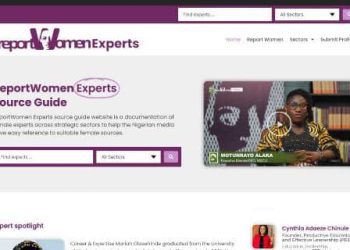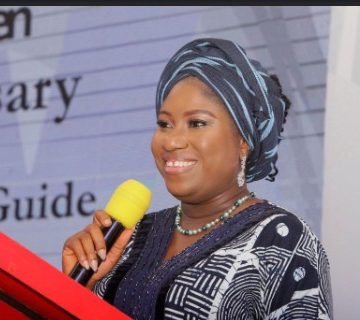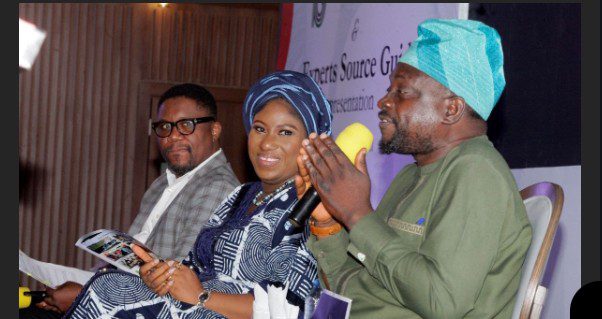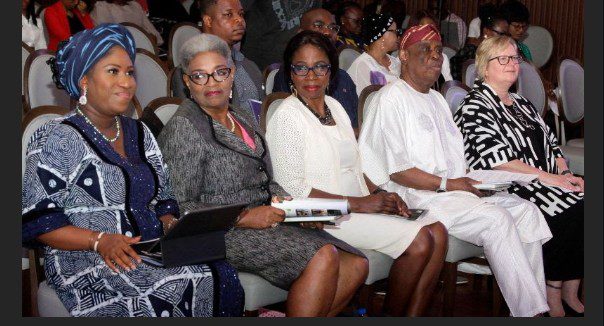The Wole Soyinka Centre for Investigative Journalism (WSCIJ) marked a significant milestone in promoting gender equality in media with the launch of its Report Women! Experts Source Guide. This initiative aims to enhance the representation of women as both subjects and storytellers in journalism, addressing the persistent underrepresentation of female voices in newsrooms.

At the event, veteran journalist and former governor of Ogun State, Olusegun Osoba, emphasized the importance of integrating women’s narratives into journalism. “We must recognize women not only as subjects of news but as influential storytellers,” he stated. Osoba lamented society’s historical oversight of women’s leadership, paying tribute to trailblazers like Yetunde Makanju and Oluremi Oyo, who have paved the way for future generations.
Motunrayo Alaka, Executive Director/CEO of WSCIJ, highlighted the guide’s role in connecting journalists with a diverse pool of female experts. “By doing so, we will enhance the quality and depth of reporting in Nigeria,” she asserted. Alaka referenced alarming statistics from the United Nations, warning that it could take 140 years for women to achieve equal representation in leadership roles, and 67 years to close the gender gap in traditional media.

Dickens Olewe, Programme Officer at the Bill and Melinda Gates Foundation, praised the WSCIJ’s decade-long efforts. “The Report Women! initiative marks a crucial step toward bridging the gender gap in journalism,” he said, commending Alaka’s passion for the program.
Chris Isiguzo, President of the Nigeria Union of Journalists, echoed this sentiment, noting the significance of the source guide. “With this guide, WSCIJ has caused a paradigm shift, providing essential resources for including more female voices in national conversations,” he stated.

The launch event included a panel discussion featuring insights from various stakeholders. Funke Fayemi, co-chair of the Report Women Network, expressed gratitude for the opportunities the program has provided. “WSCIJ has created pathways for female journalists to grow and lead in their fields,” she said.
Michel Deelen, Consul General of the Netherlands, underscored the necessity of including women in governance and media. “Their contributions are vital for good governance,” he remarked, noting the insights gained from the 136 stories produced under the program.
Omowunmi Akingbohungbe, Executive Director of Women in Management, Business and Public Service, reinforced that “gender equality is a human rights issue.” Chinyere Okunna, Deputy Vice-Chancellor of Paul University, added, “The source guide will eliminate the frequent excuse that there are no female experts available.”
The event culminated in a documentary celebrating the accomplishments of the Report Women program over the past decade and a demonstration of the new experts source guide website. Attendees included media professionals and students from various universities, all eager to understand the importance of female representation in journalism.
As WSCIJ embarks on this new chapter, the Experts Source Guide promises to be a vital tool in fostering a more inclusive media landscape, ensuring that women’s voices are heard and celebrated in the stories that shape society.

